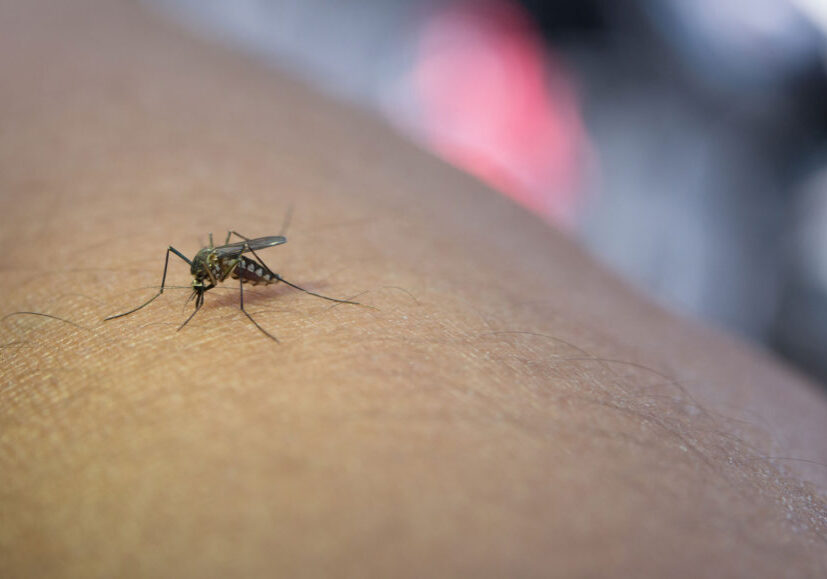Your child may feel “butterflies in their tummy” if they have a big event coming up such as an important test, a piano recital or even the first day of school. It is normal for children to feel nervous when they are expected to perform or speak in front of a group of people, if they have an upcoming dentist or doctor appointment, or if they have the pressure to do well on a test or at a sporting event. Many adults find themselves feeling nervous for similar events at work or in the community. Even though nerves are common, parents can help children calm the butterflies and be successful.

Positivity, love and encouragement can go a long way to help kids remain calm and confident before important events.
Your mood affects your child’s mood
Watching your child battle nervous feelings can be difficult and may cause parents to feel anxious and worried themselves. Children pick up on their parents’ moods and feelings and can grow more panicked when they sense their parents’ anxiety or worry. Model calming behavior to your child. Speak in a calm voice, try not to rush them and keep your chit chat positive and encouraging.
“Your teacher, peers / team, family should be behind you no matter what,” says Krysta Shadish, owner of Flare Dance and Acrobatics in Red Bluff. “That’s the work we do first – build the culture of support – remind everyone consistently that everyone’s best looks different every time, cheer loudly no matter what happens and give that high-five for the work they’ve done (whether they were a shining star or maybe a little less bright than expected)”
Mandie Burson, owner and director of Kinetics Academy of Dance in Chico, says she tells her students to take a deep breath just before going and “Just do what we do in class and have fun. The audience likes to see you having fun!”
Talk with your child about what to expect before, during, after a special event
Before the big day, discuss with your child what they can expect. “We spend time talking about the event a few days before. I allow them to ask questions and understand what to expect throughout the process.” says Lauren Heller, mother of twins. This is a great opportunity to discuss with your child what their worries are specifically and help them work through their feelings in a healthy way. Rodganna Avery, mother of three, says, “We talk about what to expect and how to handle it. We also try to find books on the topic from the library.”
Teach your child relaxation techniques
If you find your child is nervous often, sit down ahead of time and discuss some relaxation techniques that might be helpful in calming butterflies when they arise. “I taught my daughter to take slow deep breaths and to pretend she was somewhere else,” says Krystal Laws, mother of seven. Some other relaxation techniques may include stretching, reading a book, sipping a favorite drink, listening to music or talking to a friend. Many kids find physical activity relaxing. Encourage your child to take a short walk or jog, do jumping jacks, shoot hoops or play on the swing set. This will help your child release some nervous energy. Once your child has found a relaxation technique that works for them, they will have a tool in their back pocket when nerves arise.
Help your child visualize and problem solve
If your child is nervous about an upcoming recital, performance or game, have them sit still, close their eyes and visualize each step of the upcoming event and how it will go. Picture a positive outcome with everything going smoothly. During the visualization process, address any obstacles your child may foresee. “Before an ice-skating performance, we consider what would happen if she fell – just get back up, no big deal,” says Jane Hammond, mom of three. Krysta tells her students, “Mistakes will happen, practice moving through mistakes and moving forward in rehearsal so that when a mistake happens onstage, your body already knows how to handle it.”
Problem-solve with your child how you can overcome any of the challenges they may be worrying about. For younger kids, acting out the situation that is making them nervous can be very helpful. “Our boys used to have a really hard time with doctor appointments. We bought a doctor set and ‘played doctor’ while talking about what to expect. They love going now!” says Becky Asher, mom to triplet boys.
As the big day approaches, set your child up for success with a good night of rest and a healthy diet before the event. This will help them feel they are at their best when the butterflies arrive. Explain to your child that even adults get nervous about situations and these feelings are normal. Children tend to feel more secure in new situations when they know they have your support and understanding along the way. Krysta advises young performers to “love yourself enough to forgive your mistakes and move forward with a personal relationship that is one of grace and confidence in being able to traverse rough patches without letting a fall stop you in your journey.”
Posted in: Health & Nutrition
Comment Policy: All viewpoints are welcome, but comments should remain relevant. Personal attacks, profanity, and aggressive behavior are not allowed. No spam, advertising, or promoting of products/services. Please, only use your real name and limit the amount of links submitted in your comment.
You Might Also Like...

Ditch the Itch – A Family Guide to Fewer Mosquito Bites
When I was growing up, summer meant barbeques, swimming at the lake, and trying to avoid the pink polka dot treatment of calamine lotion. It’s safe to say, no one […]

Vaping and JUULing; Parents Need to Educate Themselves About E-Cigarettes
Knowledge is power, and ignorance is often not blissful, especially when parenting. Most parents agree that raising children is a constant learning experience. Many of the decisions and choices parents […]

Knowing Your Personality Type Can Help You Be A Better Parent
I am a true believer in finding out our personality type so that we can go through life being more self-aware and appreciate why we approach the world in the […]

Science Says Fathers Need to Step Up to Increase Children’s Wellbeing
Dads are playing a greater role than ever before in raising their children and being a “stay-at-home dad” is no longer as frowned upon as it was only a few […]




